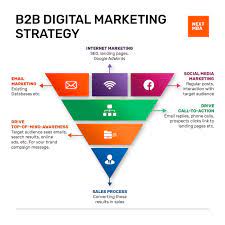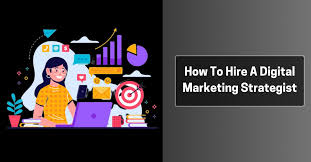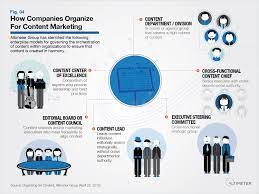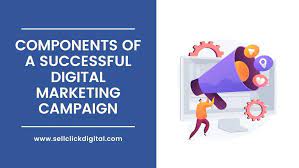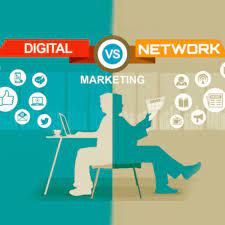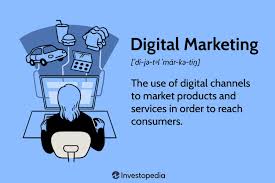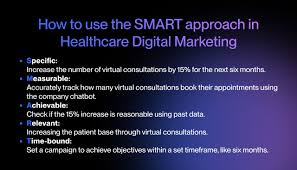The Role of a Digital Marketing Expert in Today’s Business Landscape
In the fast-paced world of digital marketing, the role of a digital marketing expert has become increasingly crucial for businesses looking to thrive in the online sphere. A digital marketing expert is a skilled professional who possesses a deep understanding of digital channels, strategies, and tools to help companies reach their target audience effectively.
Key Responsibilities of a Digital Marketing Expert
A digital marketing expert is tasked with developing and implementing comprehensive digital marketing strategies tailored to the specific goals and needs of a business. This includes:
- Search Engine Optimization (SEO): Optimising website content and structure to improve search engine rankings and increase organic traffic.
- Pay-Per-Click (PPC) Advertising: Creating and managing targeted online advertising campaigns to drive traffic and conversions.
- Social Media Marketing: Developing engaging social media campaigns to build brand awareness, engage with customers, and drive website traffic.
- Email Marketing: Crafting effective email campaigns to nurture leads, retain customers, and drive sales.
- Data Analysis: Monitoring key performance metrics, analysing data trends, and making data-driven decisions to optimise marketing efforts.
The Importance of Digital Marketing in Today’s Business World
In an era where consumers are increasingly turning to online channels for information and purchases, having a strong digital presence is essential for businesses to stay competitive. A digital marketing expert plays a pivotal role in helping companies navigate the complexities of the digital landscape and connect with their target audience in meaningful ways.
By leveraging their expertise in various digital marketing techniques, tools, and platforms, a digital marketing expert can help businesses enhance brand visibility, generate leads, increase conversions, and ultimately drive revenue growth. Their strategic insights and creative approaches can make a significant impact on the success of a company’s overall marketing efforts.
Conclusion
In conclusion, the role of a digital marketing expert is indispensable in today’s business environment. By staying abreast of industry trends, leveraging cutting-edge technologies, and implementing innovative strategies, these professionals are instrumental in helping businesses achieve their marketing objectives and stay ahead of the competition in the ever-evolving digital landscape.
If you are looking to elevate your brand’s online presence and maximise your digital marketing efforts, partnering with a skilled digital marketing expert can be the key to unlocking new opportunities for growth and success.
Top 5 Benefits of Hiring a Digital Marketing Expert for Your Business
- Expertise in leveraging digital channels to reach a wider audience
- Ability to craft targeted and personalised marketing campaigns for specific demographics
- Proficiency in analysing data and measuring the effectiveness of marketing strategies
- Stay updated on the latest trends and technologies in the digital marketing landscape
- Help businesses increase brand visibility, generate leads, and drive revenue growth through online channels
Challenges of Hiring a Digital Marketing Expert: High Costs, Skill Variability, Time Demands, and Market Saturation
Expertise in leveraging digital channels to reach a wider audience
With expertise in leveraging digital channels to reach a wider audience, a digital marketing expert possesses the knowledge and skills necessary to expand a company’s online reach and visibility. By utilising various digital platforms and strategies effectively, such as social media, search engine optimisation, and email marketing, they can target specific demographics and engage with a broader audience base. This ability not only increases brand awareness but also drives traffic, leads, and conversions, ultimately contributing to the overall growth and success of the business in the competitive digital landscape.
Ability to craft targeted and personalised marketing campaigns for specific demographics
One of the key advantages of a digital marketing expert is their ability to craft targeted and personalised marketing campaigns tailored to specific demographics. By leveraging data-driven insights and sophisticated targeting tools, these experts can create highly relevant and engaging content that resonates with different audience segments. This personalised approach not only enhances brand loyalty and engagement but also increases the likelihood of conversion, as it speaks directly to the unique needs and preferences of each demographic group.
Proficiency in analysing data and measuring the effectiveness of marketing strategies
A notable advantage of a digital marketing expert is their proficiency in analysing data and measuring the effectiveness of marketing strategies. By leveraging data analytics tools and techniques, these professionals can gather valuable insights into the performance of various digital marketing campaigns. This data-driven approach allows them to identify trends, track key performance indicators, and make informed decisions to optimise marketing efforts for maximum impact and ROI. Through meticulous analysis and measurement, digital marketing experts can continuously refine strategies, target the right audience, and drive tangible results for businesses in today’s competitive online landscape.
Stay updated on the latest trends and technologies in the digital marketing landscape
Staying updated on the latest trends and technologies in the digital marketing landscape is a key advantage of working with a digital marketing expert. By continuously monitoring industry developments and emerging tools, these professionals can leverage cutting-edge strategies to keep your business ahead of the curve. Whether it’s implementing new social media algorithms, utilising innovative advertising platforms, or adopting data-driven approaches, a digital marketing expert’s commitment to staying informed ensures that your marketing efforts remain relevant, effective, and competitive in today’s rapidly evolving digital world.
Help businesses increase brand visibility, generate leads, and drive revenue growth through online channels
A digital marketing expert brings invaluable expertise to help businesses increase brand visibility, generate leads, and drive revenue growth through online channels. By crafting targeted strategies and leveraging various digital marketing tools and techniques, they can enhance a company’s online presence, attract potential customers, and ultimately boost sales. Their ability to navigate the complexities of the digital landscape enables businesses to reach their target audience effectively and achieve tangible results in terms of brand recognition, lead generation, and revenue expansion.
Costly Investment
For smaller businesses with constrained budgets, investing in a digital marketing expert can pose a significant financial challenge. The cost of hiring a skilled professional in this field may exceed the allocated resources, making it a daunting prospect for companies operating on limited funds. This financial barrier can impede smaller businesses from accessing the expertise and guidance needed to effectively navigate the digital marketing landscape and compete with larger enterprises. As a result, finding cost-effective solutions or alternative strategies becomes essential for these businesses to maximise their online presence and reach their target audience without overspending on digital marketing services.
Skill Variability
Skill variability is a notable con when it comes to digital marketing experts. While some professionals excel in certain areas of digital marketing, they may lack expertise in others, creating potential gaps in knowledge and skills. This variability can impact the overall effectiveness of a digital marketing strategy, as it requires a diverse set of skills to cover all aspects comprehensively. Businesses must carefully assess the skill set of a digital marketing expert to ensure they have the necessary expertise in key areas to deliver successful outcomes and maximise the impact of their digital marketing efforts.
Time-Intensive
One significant drawback of being a digital marketing expert is the time-intensive nature of developing and implementing effective strategies. The process of crafting and executing successful digital marketing campaigns demands meticulous attention to detail, continuous monitoring of performance metrics, and making timely adjustments to optimise results. This constant need for monitoring and refinement can be demanding, often requiring long hours and a high level of dedication to ensure that the desired outcomes are achieved. Balancing the time-consuming nature of digital marketing efforts with other responsibilities can be a challenge for professionals in this field.
Market Saturation
Market saturation is a significant con of the digital marketing expert industry. With the rising number of professionals in this field, businesses are faced with intense competition, making it increasingly difficult to differentiate and select the most suitable expert for their unique requirements. This saturation can create challenges for companies seeking to stand out in a crowded market and find a digital marketing partner who truly understands their goals and can deliver effective strategies tailored to their specific needs.


